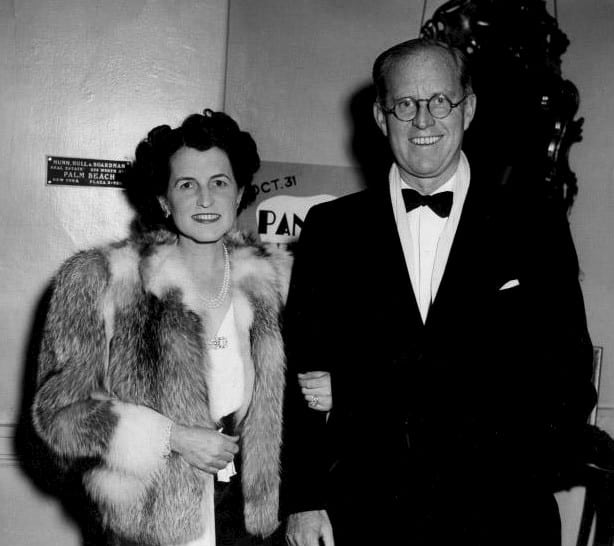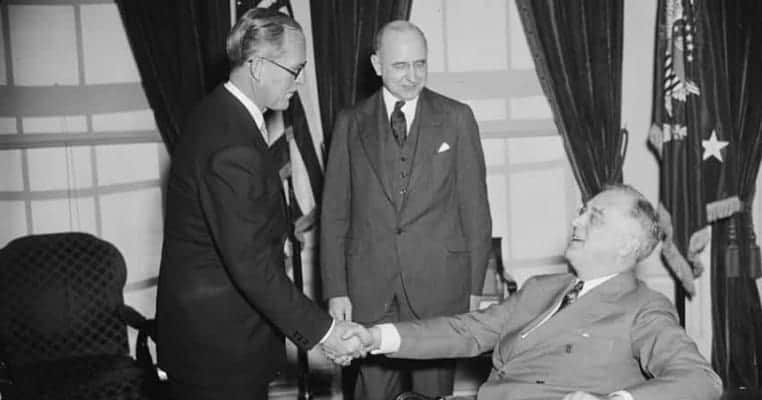Joseph Kennedy Sr. first met with Franklin D. Roosevelt when the latter was serving as Assistant Secretary of the Navy during the First World War. Kennedy had taken a position at the Fore River Shipyard at Quincy Point, Massachusetts. Kennedy didn’t need to work at the shipyard, he was already quite well-to-do from his successful investments in real estate and banking, but he wanted to support the American war effort, with an eye on a future political career. As an assistant supervisor, he was a member of a construction effort which delivered more than 70 destroyers to the US Navy over the course of the war.

Though he and FDR did not work closely together during World War One, subsequent events would bring them together again during the Great Depression. By then both men were well known for their wealth and the image of privilege which surrounded them. FDR, an athletic man during the First World War, had been stricken with polio and confined to a wheelchair. Kennedy was known for his affairs with Hollywood starlets, his real estate empire, and his uncanny ability to make huge sums of money through the stock market, all through the 1920s. Roosevelt had need of his services, and Kennedy had need of a political patron. Neither got exactly what they wanted.

1. Kennedy was born into a financially comfortable Boston family
Joe Kennedy’s father was a successful saloon owner and real estate investor when Joe was born, and though the family was shunned by Boston society for being Irish, they were financially well off. Joe was an indifferent student, though popular and athletic, and entered Harvard College, at which he lobbied hard to join the Hasty Pudding Club and played on the school’s baseball team. When he graduated it was with a bachelor’s degree in economics, in 1912. Two years later he surrendered his status as a bachelor when he married Rose, the daughter of John Fitzgerald, the mayor of Boston known by his nickname, Honey Fitz.
Following his graduation from Harvard, Kennedy first worked as an employee of the Commonwealth, serving as a bank examiner. His sharp eye for opportunity and astute financial judgment, as well as what in a later day, came to be called inside information presented him with his first business coup. Aware that Columbia Trust Bank was about to be taken over he borrowed the equivalent of $1.1 million dollars and purchased control of the bank, installing himself as its president, through an election held among the shareholders. He was just 25 at the time, and he boasted that he was the youngest bank president in the United States, an unconfirmed piece of bravado.

